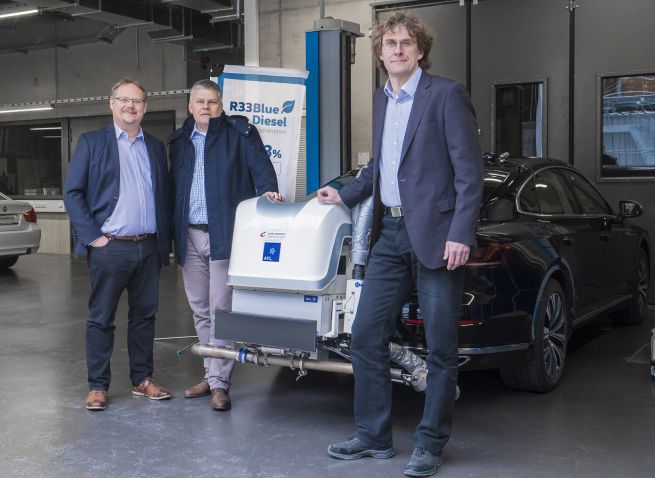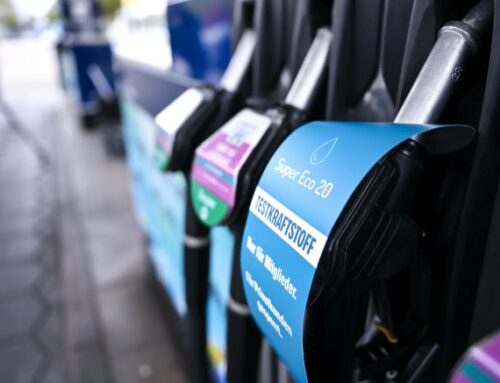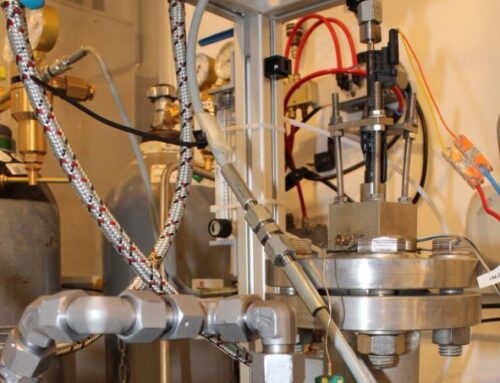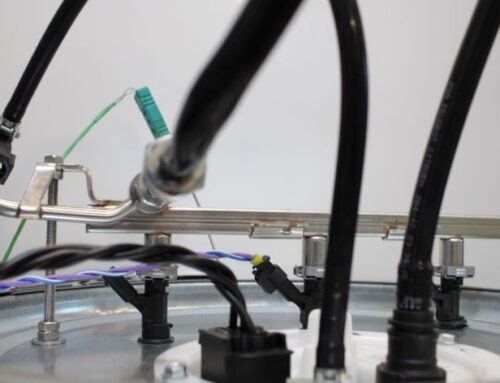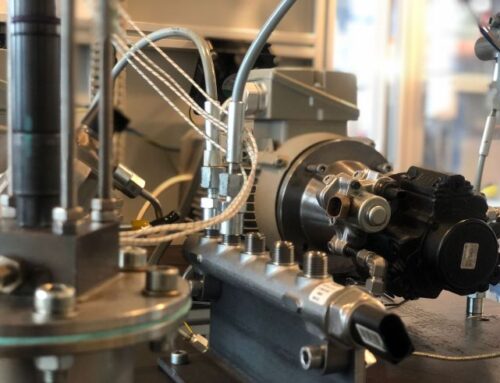06 February 2019 –
Scandal, driving bans, climate change – at the moment diesel has a hard time in Germany. Does this fuel still have any prospects at all? The Automotive Technology Transfer Centre for Automotive Technology (TAC) at Coburg University of Applied Sciences is working on an environmentally friendly alternative.
Every day, an important raw material for diesel R33 is produced in Germany’s snack bars. The used cooking oil left behind e.g. by fries serves as the basis for biodiesel. “Seven percent biodiesel from used cooking oil is in the finished fuel, plus 26 percent hydrogenated vegetable oil,” explains Dr. Olaf Schröder, provisional head of the Department of Analytical Chemistry and Fuel Research at the TAC) where diesel R33 was developed.
Anja Singer, who together with Schröder is acting head of the Department of Analytical Chemistry and Fuel Research, reports: “In all research projects that we are working on at the TAC, diesel R33 is present in some form as a reference fuel and is being further developed. For example, in the “Real Driving Emissions” project. This project investigates the exhaust emission values of a fleet of vehicles filled with R33 diesel under real road conditions. Currently, the CO2 balance has been improved by 25 percent. Another project deals with plug-in hybrids and the question: What happens to the fuel if it remains unused in the tank for six months because the vehicle was electrically powered? Diesel R33 is also being tested here.
The Coburg University collaborated with over 20 project partners in the development of Diesel R33. One of them is Volkswagen. In Wolfsburg, the fuel is being further researched under the name “R33 BlueDiesel”. Employees can fill their company vehicles with R33 BlueDiesel at several internal filling stations of the automobile manufacturer. “Some of our major customers also use the fuel. And talks are underway to make it available at public filling stations. We are also participating in the research and development of the regenerative components. We are also interested in previously unexploited sources such as household waste or sewage sludge,” says Prof. Dr. Thomas Garbe, sub-department head for petrol and diesel fuels at Volkswagen and honorary professor at Coburg University.
But does diesel fuel still have a future in view of current developments in Germany? Clearly yes, says Dr. Olaf Schröder. “A diesel vehicle remains the best option for all those who have to cover long distances with heavy vehicles and also for people who work in the field and drive several hundred kilometres a day.
That’s why further research on the R33 diesel is definitely worthwhile. “The project is definitely a success. We were able to develop a fuel with a high regenerative content. And finally, it will be used in Germany, albeit not regionally here in Coburg, and will contribute to a better CO2 balance,” says Dr. Olaf Schröder. The climate-friendly potential of the fuel even goes beyond its use in vehicles.
Because diesel is not only used to refuel vehicles, but also as heating oil. TEC4FUELS, a service provider that conducts research in the field of fuels and lubricants, has investigated Diesel R33 in its own project. The aim was to find out whether the fuel in its composition can also be used on the heating oil market. “R33 is also an option for the heating market,” confirms Dr. Klaus Lucka, Managing Director of TEC4FUELS GmbH. “With the fuel mixture oil heaters can be likewise operated, in order to achieve fast a greenhouse gas reduction in the domestic heating market.
